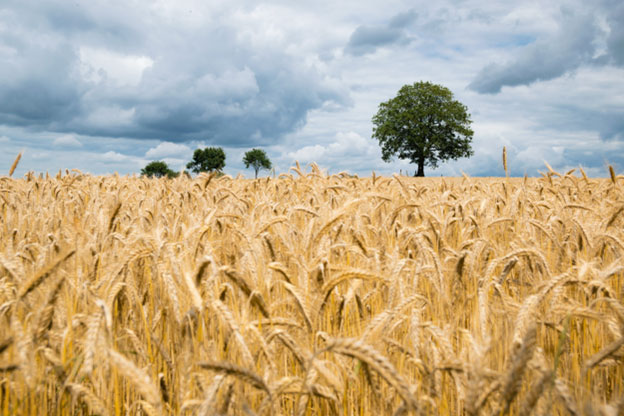
The global wheat market is an important part of the agricultural industry, providing much-needed food for people around the world. With the increasing demand for wheat products, stocks in this sector can offer tremendous potential for investors looking to diversify their portfolios.

Investing in wheat stocks can be a great way to capitalize on rising prices and benefit from global trends. In this article, we will explore some of the top wheat stocks to buy in 2023. We’ll look at their history, products, and recent performance in order to find out which ones are worth investing in. So without further ado, let’s dive into the top three wheat stocks that you should consider buying now!
Introduction to Investing in Wheat Stocks
Investing in wheat stocks can be a lucrative opportunity for investors looking to diversify their portfolios. The wheat industry is a vital component of the global food industry, with strong demand for the commodity due to its use in a wide range of human foods. Wheat has also become an increasingly important source of biofuels and industrial products such as bio-based plastics.
Factors Affecting Wheat Stock Performance
The performance of wheat stocks is driven by various factors, including crop yields, wheat prices, demand for wheat, and geopolitical developments such as the Russia-Ukraine war. Additionally, the stocks of companies that produce agricultural commodities like wheat, such as John Deere and MGP Ingredients, are also influenced by the broader market and factors such as earnings per share and regular dividends.
Benefits and Risks of Investing in Wheat Stocks
Investing in wheat stocks offers the potential for strong returns, but it also carries some risks. Fluctuations in wheat prices, production costs, and changes in government policies can impact stock performance. However, investors can take advantage of investment opportunities through fractional shares and exposure to wheat futures contracts through online trading platforms like CME Group. Overall, investing in wheat stocks offers an exciting opportunity for those looking to invest in the resilient and constantly evolving grain industry.

Top 3 Wheat Stocks for 2023
The best wheat stocks include Archer Daniels Midland (ADM), Bunge Limited (BG), and Cargill Incorporated (CARG).
Archer Daniels Midland (ADM): Company Overview, Performance, and Outlook
Archer Daniels Midland Company (ADM) is an American commodities trading and processing agriculture company. Founded in 1898, the company operates in more than 160 countries across five continents. ADM specializes in products derived from corn, wheat, oilseeds, and other crops. It is one of the largest buyers and processors of wheat in the world.
Performance and Outlook
ADM’s stock has been a strong performer in the last five years, with its share price nearly doubling since 2015. The company has benefited from rising grain prices and strong demand for its products. Going forward, analysts expect ADM to continue to benefit from growing global wheat exports, as well as increasing investments in biofuels and other alternative energy sources.
Bunge Limited (BG): Company Overview, Performance, and Outlook
Bunge Limited (BG) is a leading global agribusiness and food company with operations in over 40 countries. Founded in 1818, the company is one of the largest processors of wheat, corn, and soybeans. Bunge also produces a range of edible oils and fats products as well as sugar and ethanol.
Performance and Outlook
Bunge’s stock has been relatively stable over the past five years, with its share price up around 10% since 2015. The company is well-positioned to benefit from increasing demand for food products, especially in developing countries. Going forward, analysts expect Bunge’s performance to improve due to rising grain prices and increasing investments in alternative energy sources.
Cargill Incorporated (CARG): Company Overview, Performance, and Outlook
Cargill Incorporated (CARG) is an American privately held global agricultural and food corporation. Founded in 1865, the company is one of the world’s largest producers and marketers of grain and oilseeds, including wheat. Cargill also produces a range of animal feed products as well as processed foods and specialty ingredients.
Performance and Outlook
Cargill’s stock has been a strong performer in the past five years, with its share price up around 50%. The company has benefited from strong demand for its products and rising grain prices. Going forward, analysts expect Cargill to benefit from increasing global demand for food products, as well as investments in alternative energy sources.
Considerations for Investing in Wheat Stocks
Investing in wheat stocks requires a careful analysis of both market and industry trends. The wheat industry has seen strong demand for food staples and grains, which bodes well for producers like Bunge Limited (BG). However, crop yields, production costs, and international politics can all influence the price of wheat, making it essential to monitor broader market and commodity trends.
Company Financials and Fundamental Analysis
Bunge Limited (BG), for example, has a stable financial position despite some production cost challenges in recent years. Their earnings per share and regular dividend payouts make them an attractive option for investors seeking stability and income. Additionally, the company offers a wide range of products and exposure to various industries, including industrial products and food commodities.

Technical Analysis and Price Patterns
Technical analysis can also offer valuable insights into investing in wheat stocks, such as identifying price patterns and potential entry and exit points. It is important to utilize online trading platforms and futures contracts to access the market efficiently.
Overall, investing in wheat stocks requires a thorough analysis of market and industry trends, company financials, and technical analysis to identify investment opportunities, evaluate risks, and achieve your investment objectives.
Conclusion
In conclusion, investing in wheat stocks in 2023 may present attractive opportunities due to strong demand and promising crop yields. However, as with any investment, it is crucial to conduct thorough research and due diligence before making any decisions.
Investors must also stay informed about market and industry trends such as commodity prices and geopolitical risks, such as the ongoing Russia-Ukraine conflict. It is important to utilize tools such as technical analysis and online trading platforms to access the market efficiently.
Furthermore, readers should seek personalized investment advice from a financial advisor to ensure that their investment decisions align with their individual needs and goals. Overall, with careful consideration and proper guidance, wheat stocks may present a valuable addition to an investment portfolio.

Frequently Asked Questions:
How can I invest in wheat stocks?
Investing in wheat stocks is a relatively straightforward process. First, investors must decide which type of wheat stock to invest in. Options include exchange-traded funds (ETFs), mutual funds, or individual stocks. For those seeking long-term investments, ETFs and mutual funds can provide access to a wider range of companies at lower costs than buying individual stocks.
Once an investor has determined the type of investment, they can purchase wheat stocks through an online brokerage platform. Additionally, investors should always seek personalized investment advice from a financial advisor to ensure that their investment decisions align with their individual needs and goals.
What factors should I consider before investing in wheat stocks?
Before investing in wheat stocks, investors should consider factors such as market and industry trends, company financials, and technical analysis. It is important to stay informed about broader economic trends such as commodity prices and geopolitical risks.
Additionally, investors should assess the company's financial position and analyze price patterns with technical indicators. Furthermore, it is essential to utilize tools such as online trading platforms to access the market efficiently and cost-effectively.
Can you recommend any other wheat stocks to consider?
Wheat stocks to consider include Archer Daniels Midland (ADM), Bunge Limited (BG), and Cargill Incorporated (CARG). These companies have a long history of strong performance in the wheat market, with ADM and Bunge having a presence in the market since 1902. Additionally, these companies have a well-diversified product portfolio, which allows them to hedge against market volatility and remain competitive.
How can I stay updated on the performance of wheat stocks?
Investors can stay updated on the performance of wheat stocks by monitoring news outlets, following industry analysts, and subscribing to newsletters from financial advisors. Additionally, investors should use online trading platforms to track price movements in order to identify trends and potential entry and exit points in commodity markets.
It is also important to read company reports and regulatory filings for insights into their financial standing. Furthermore, investors should keep an eye on the broader macroeconomic environment, including global agricultural trends and geopolitical risks.
Are there any risks associated with investing in the wheat industry?
Yes, there are risks associated with investing in the wheat industry. Wheat prices are subject to volatility due to changing weather conditions, demand from buyers, government subsidies, and other macroeconomic factors. Additionally, geopolitical risks can have a significant impact on global wheat markets as well.
For example, tariffs imposed by the US and China over the past year have caused a disruption in international trade which has affected wheat prices. Therefore, investors should be aware of these risks and conduct their own due diligence before investing in wheat stocks.
